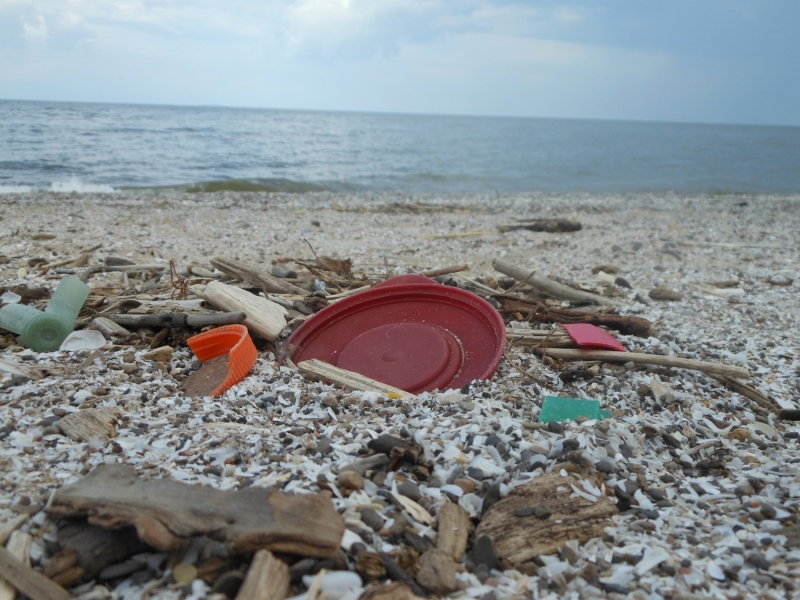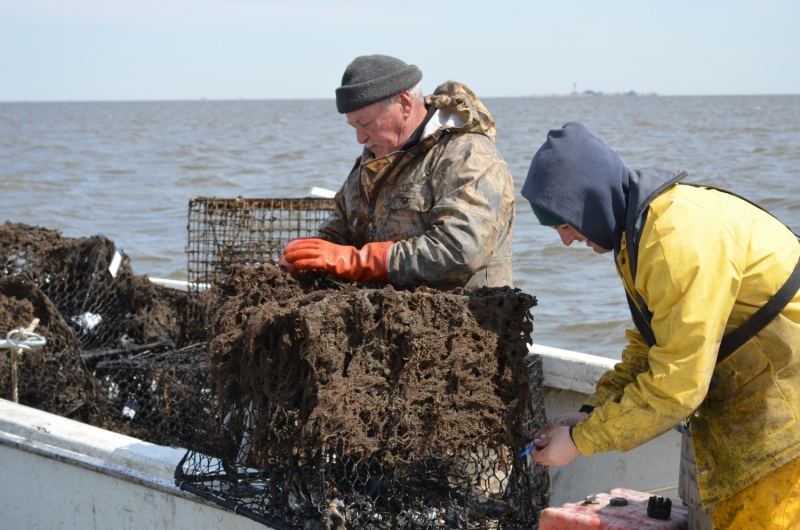Marine debris can be dangerous for wildlife, damage sensitive habitats, and create safety and navigation hazards. But did you know that marine debris can also hurt the economies of coastal communities and decrease commercial fishing revenue? Marine debris can keep tourists away from beaches, compete with active fishing gear and reduce commercial catches, and cost small businesses money.
In order to reduce the economic impacts of marine debris, the NOAA Marine Debris Program (MDP) funds projects that benefit commercial and recreational fisheries, small businesses, and coastal communities by preventing marine debris from entering the marine environment in the first place and removing existing debris from shorelines and coastal areas.
Tourism and Recreation
In the United States, the tourism and recreation sector is the largest employer in the ocean and Great Lakes economy. Marine debris littered on beaches may prevent tourists from spending their time and money in coastal communities that rely on tourism. A study funded by the MDP found that on coastal beaches in Ohio, reducing marine debris to almost zero was estimated to generate an additional $217 million tourism dollars spent in communities and over 3,700 jobs.
A multi-faceted education campaign with The Ohio State University is tackling marine debris prevention with visitors to a popular tourist destination - South Bass Island and the village of Put-in-Bay, Ohio. By preventing single-use items from entering Lake Erie, tourists will benefit both the natural environment and the tourism industry by keeping island beaches and natural areas free from debris.

Fishers and Fisheries
Lost and derelict fishing gear can impact commercial and recreational fisheries by continuing to capture wildlife, competing with active gear. Removing derelict fishing gear can improve the efficiency of active gear and increase commercial landings. With an estimated 145,000 derelict crab pots currently resting in the Chesapeake Bay, a MDP-funded study found that the targeted removal of derelict crab pots in high-density fishing areas would increase the harvest of blue crabs by 38 million pounds, and result in an increase of $33.5 million in revenue (in 2014 dollars).

The Marine Debris Program funds projects that work with local commercial fishers to remove derelict fishing gear. The commercial fishers earn money outside of the fishing season by helping to remove the derelict fishing gear, while also benefiting the environment. In Alaska, the Island Trails Network runs a voluntary program that pays set-net fishers to remove marine debris from coastlines near their respective fishing sites during fishing closures. Through this project, nearly 14 metric tons of debris have been removed to date. In North Carolina, the North Carolina Coastal Federation hired local fishers during the closed season to recover over 45 metric tons of derelict crab pots. In New Jersey, Stockton University hired local crabbers to remove derelict traps and return reusable traps to their owners, resulting in over $80,000 in direct and indirect economic benefits to commercial industry partners over several years of work.
Small Businesses
Plastics and other single-use items, including food and beverage packaging, are a big part of our waste stream and a very visible part of the marine debris problem. In many communities, restaurants and food service businesses seek alternatives to single-use materials, but may need assistance in making the transition. Providing alternatives to disposable food packaging can help prevent marine debris and also help restaurants and food service businesses save money.
A past project with the Clean Water Fund worked with take-out food businesses in Santa Clara County, California to identify opportunities to voluntarily reduce the use of commonly littered food and beverage packaging. These small, locally-owned businesses eliminated over 1.4 million single-use disposable items, prevented 24,265 pounds of waste, and saved an average of $6,000 a year. As part of a project with Plastic Free Gulf Coast, organizations in Alabama, Mississippi, and Louisiana, are working with communities, restaurants, and businesses to reduce and hopefully eliminate single-use plastics. Through this project, they found that 60% of people are willing to spend an extra $0.40 per meal to support plastic-free alternatives.
In order to reduce the economic impacts of marine debris, the Marine Debris Program works with coastal communities, fishers, and small businesses to prevent marine debris from entering the marine environment in the first place and to remove existing debris from shorelines and coastal areas. By working together as a community, we can make a difference in the fight against marine debris.
